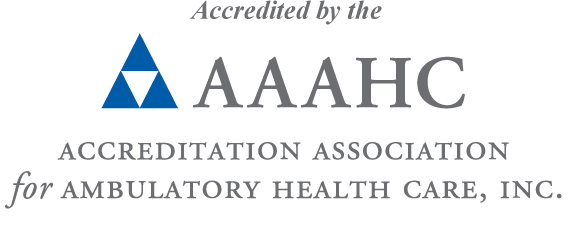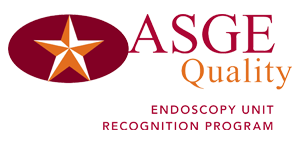Sigmoidoscopy
General Information:
- Description: A small flexible scope with a camera mounted on the end (sigmoidoscope) is inserted into the rectum and guided up the colon examining the lower portion of the colon. Specimens can be taken of the colonic lining at the time of the study. A doctor (or sometimes a nurse) performs the test with the assistance of a nurse in a doctor’s office, endoscopy center, or hospital. The Gastroenterologist interprets the results. If specimens are obtained, a Pathologist interprets the results. The test takes 10-30 minutes to perform.
- Discomfort – There is mild to moderate discomfort associated with passage of the scope and having air put into the colon.
- Results – The Gastroenterologist’s interpretation is available immediately; 2-3 days for results from tissue samples obtained.
- Risks of Test – The main complication is perforation of the colon (1 in 5,000-7,000). Other potential complications include bleeding or infection.
- Other Names – Flex sig, flexible sigmoidoscopy.
Indications for the Test
- Colorectal cancer screening – To identify polyps (growths that may turn into cancer) and cancer.
- To evaluate bleeding, diarrhea, or inflammatory bowel disease.
Preparation
- There is a mild bowel prep to be taken at home either the evening before or the morning of the test.
- You may be advised that nothing should be consumed for 8 hours before the test, except medications as directed by your doctor.
- Aspirin, non-steroidal anti-inflammatory drugs (aspirin substitutes), blood thinners, and anticoagulants should not be taken for five days before the test to reduce the risk of bleeding.
- Some persons may be given an antibiotic before the test if there is a risk of infection associated with the test.
- You wear a hospital gown.
Procedure
- The test is generally well tolerated without sedation, but sedation can be given if requested.
- While lying on your left side, the scope is guided into the colon. The doctor examines the colonic lining as it is projected to a TV monitor. Air is instilled into the colon to aid in visualization of the lining.
- If indicated by the findings, the doctor can take tissue samples, treat sites that are bleeding, or remove polyps (growths).
- During the test, you may have discomfort related to a feeling of distention. Breathing slowly and deeply can usually relieve this discomfort.
After the Procedure
- You are free to dress and leave.
- You will pass the air instilled into the colon after the test.
- Notify your doctor immediately if significant pain or bleeding occurs after the test.
Factors Affecting Results
- An inadequate bowel prep can limit the ability to examine the colonic lining.
- Some may find the test too uncomfortable to allow completion.
- The presence of significant diverticulosis (small pockets or out-pouchings in the colonic wall) can limit the ability to pass the scope.
Advantages
- A direct examination of the colonic lining is possible.
- Tissue specimens can be obtained if indicated.
- Minimal preparation and no sedation are required.
Disadvantages
- The test can be uncomfortable for some.
- The test does not allow for the examination of the entire colon (as in colonoscopy).
Frequently Asked Questions
- Do I take my blood pressure medicine before the test? Yes.
- I take blood thinners. What do I do? Do not take blood thinners for four days prior to the test.
- I’m on dialysis. Are there any special instructions? Drink Colyte prep instead of Fleets the night before the test.
- My test is scheduled for late afternoon. Can I eat something prior to the test? No, just clear liquids up until 4 hours prior to the test.
- I’m a diabetic. Do I take my normal amount of insulin? Take ½ of your normal dosage the night before the test. Do not take insulin the morning of the test. If you take oral medication for your diabetes, do not take your medication the morning of the test.
- Can I take aspirin prior to the test? Do not take aspirin 4 days prior to the test.
- Can I take iron? Do not take iron 4 days prior to the test.
- Can I take my heart medicine? Yes, take as normal.


